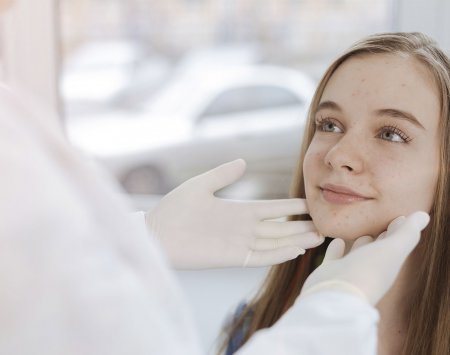Acne affects a lot of people, of any age, across the world. The impact of this condition varies from person to person. So, when exactly should you contact a dermatologist?
Some forms of acne improve spontaneously. Others can get worse. It is very difficult, even impossible, to predict how a patient’s acne will evolve and determine whether it will get better, disappear or get worse.
Dr Sandra Ly, Dermatologist, Hôpital Saint-André, Bordeaux University Hospital, and Dermatology Clinic in Gradignan (France).
For some, over-the-counter topical skincare products and a daily care routine are enough to solve the problem. Others need to find more powerful, long-term solutions. In particular, women experiencing late or persistent acne, known as women’s acne, often feel like they have tried everything and that nothing works.
However, today, there are solutions adapted to all types of acne. Pharmacists, doctors and dermatologists are there to help you find the right one.
So, when is the right moment to consult a specialist? Is it worthwhile even if the acne isn’t very severe? What will happen during the consultation? How are acne treatments monitored?
Classic treatments help with light to moderate acne, while waiting for spontaneous improvement. They help patients have a more serene adolescence and make a few extra months or years of controlled acne possible, with fewer marks and scars.
Dr Sandra Ly, Dermatologist









